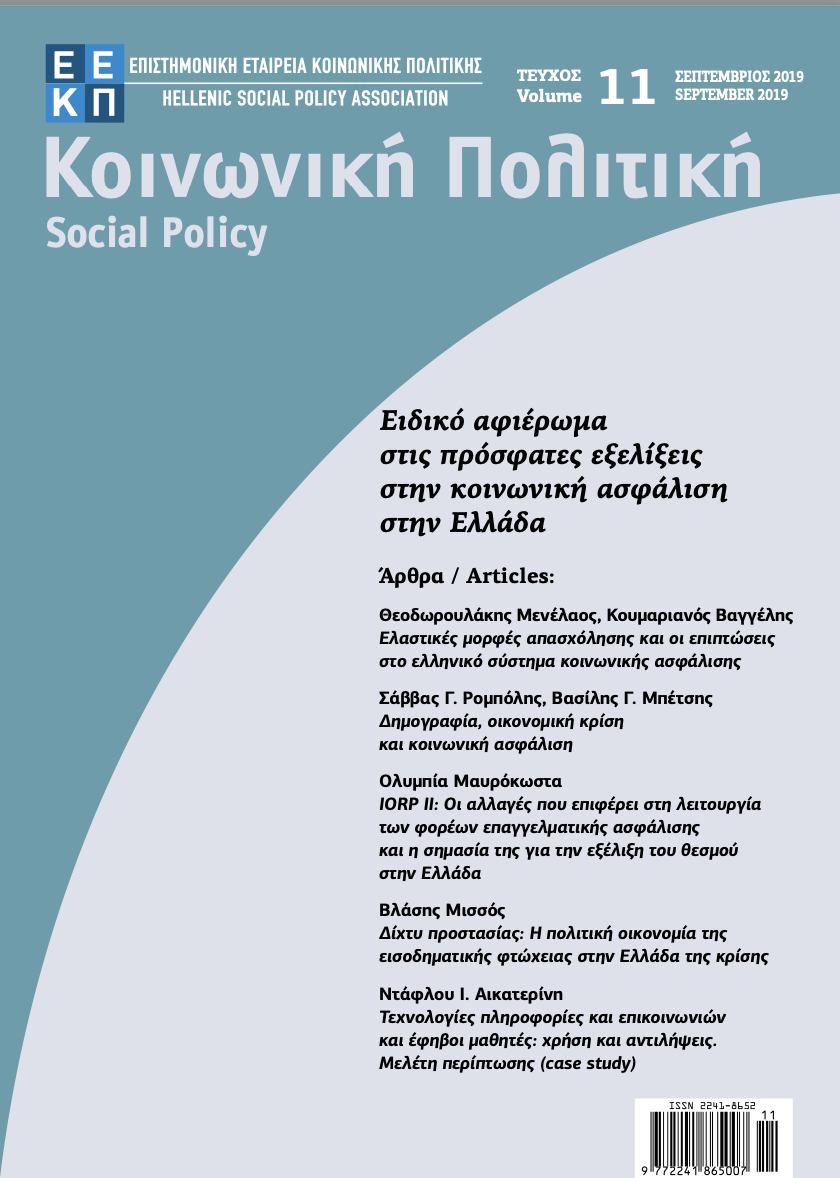Δημογραφία, οικονομική κρίση και κοινωνική ασφάλιση
Abstract
Η συστημική και ποσοτική διερεύνηση και ανάλυση της προοπτικής του συστήματος κοινωνικής ασφάλισης στην Ελλάδα, από την οπτική των δημογραφικών εξελίξεων, αναδεικνύουν το συμπέ- ρασμα ότι οι δυσμενείς μεταβολές των δημογραφικών μεταβλητών, ιδιαίτερα κατά την περίοδο των ετών (2010 και μετά) της ύφεσης και της λιτότητας, οδήγησαν τόσο την χώρα μας, όσο και τα άλλα κράτη-μέλη της Ευρωπαϊκής Ένωσης, στη διεύρυνση της δημογραφικής γήρανσης και κατ’ επέκταση στην ηλικιακή δομή του πληθυσμού, δηλαδή στην αύξηση του ποσοστού των ηλικιωμένων στον συνολικό πληθυσμό. Το αποτέλεσμα αυτών των εξελίξεων στο μέλλον είναι η επίδραση της δημογραφικής γήρανσης σε χαμηλούς ρυθμούς μεταβολής του ΑΕΠ να είναι αναπόφευκτη. Παράλληλα, αναδεικνύεται ότι οι δυσμενείς δημογραφικές εξελίξεις (υπογεννη- τικότητα, γήρανση του πληθυσμού) συμβάλλουν σήμερα στην αύξηση των συνταξιοδοτικών δα- πανών κατά 15%.
Article Details
- How to Cite
-
Ρομπόλης Σ. Γ., & Μπέτσης Β. Γ. (2021). Δημογραφία, οικονομική κρίση και κοινωνική ασφάλιση. Social Policy, 11, 42–60. https://doi.org/10.12681/sp.29015
- Issue
- Vol. 11 (2019)
- Section
- Articles

This work is licensed under a Creative Commons Attribution 4.0 International License.
Authors who publish with this journal agree to the following terms:
Authors retain copyright and grant the journal right of first publication with the work simultaneously licensed under a Creative Commons Attribution Non-Commercial License that allows others to share the work with an acknowledgement of the work's authorship and initial publication in this journal.
Authors are able to enter into separate, additional contractual arrangements for the non-exclusive distribution of the journal's published version of the work (e.g. post it to an institutional repository or publish it in a book), with an acknowledgement of its initial publication in this journal.
Authors are permitted and encouraged to post their work online (preferably in institutional repositories or on their website) prior to and during the submission process, as it can lead to productive exchanges, as well as earlier and greater citation of published work.



